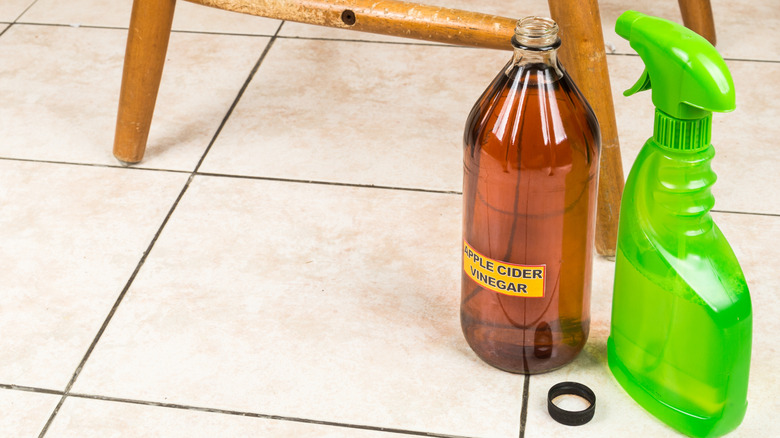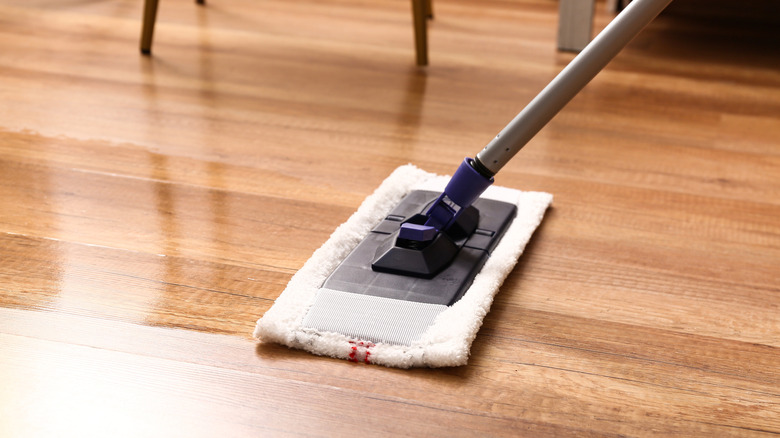Cleaning Mistakes To Avoid Making With Apple Cider Vinegar
We may receive a commission on purchases made from links.
There's no doubt about it: Cleaning products have gotten pricier in recent years. So, more homeowners may be looking for cost-effective and powerful cleaners to keep their homes spotless. Unsurprisingly, using vinegar as a DIY cleaner has risen in popularity. And, since apple cider vinegar is natural, it's safe to use on everything, right? Well, not exactly.
There are so many ways to use apple cider vinegar for a cleaner home, but it can also damage certain surfaces if not used properly. Created by fermenting alcohol made from apple juice, apple cider vinegar is distilled white vinegar's gentler younger sister. It contains slightly less acetic acid (the ingredient responsible for eradicating scary bacteria and breaking up grime) than white vinegar — 5 to 6% compared to 5 to 10% for its white counterpart. However, this juice-colored vinegar has the cleaning power to take on your biggest messes. Plus, its scent disappears quicker, making it ideal for those who hate the smell of vinegar. But with all that power comes responsibility — due to its acidity, this product is not a match made in heaven for all your home's cleaning needs. It would be a mistake to use apple cider vinegar on some types of wood, stone, and even laundry.
What to avoid cleaning with apple cider vinegar
So what surfaces shouldn't be cleaned with apple cider vinegar? Let's start with the floors and counters: hardwood and natural stone are especially susceptible. The acidity that's great at eating away dirt and grime can actually cause chemical damage called etching, leading to dullness or discoloration. Most tiles (bathroom, kitchen, etc.) can withstand apple cider vinegar, but remember to check the grout first. The vinegar can seep through broken or improperly sealed grout and cause it to crumble.
It may be tempting to reach for apple cider vinegar to clean up pet messes, but this is a mistake. Rather than cleaning up the mess, it hides the smell of urine temporarily, meaning your pets might be tempted to use that spot again later. Instead, reach for a pet mess cleaner, like Nature's Miracle Stain and Odor Remover.
Apple cider vinegar can be a great way to tidy up the rest of the house, but there's a few crucial areas to skip using it. In the kitchen, avoid using it on rubber seals in appliances, as it can cause them to distort or crack. In a pinch, it can help remove rust on your cast iron pans, but beware — long-term use has shown to destroy the iron itself. In the living room or home office, it might make your tech look clean, but it can damage the protective layer on screens. And in the laundry room, skip apple cider vinegar and use distilled white vinegar in your laundry. Why? The former may actually stain your clothes.

